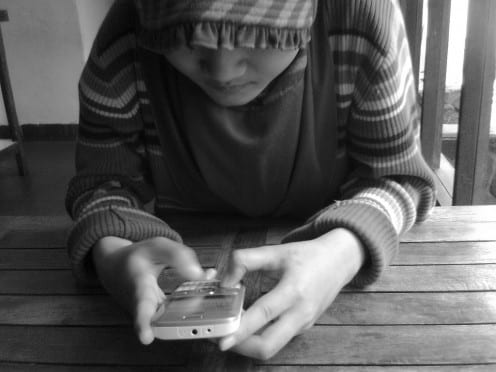Why do eight comparative ethnographies?
By Daniel Miller, on 8 December 2012

Photo: Ed Schipul (Creative Commons)
I suspect that the initial response of most anthropologists to this kind of comparative study will be negative. Our model of work is incredibly specific, insisting upon the integrity, even the holism, of a fieldsite. It is almost as though we try to deny the often almost arbitrary nature of that particular village or town as our selected place of study, by the sheer devotion we have to the integrity of this place – which can become an account of ‘how my people do things’. It’s a bit like marriage, where, in truth there are thousands of people we might have married, but once we are married we create a relationship that is as though it is impossible to imagine that it could have ever been anyone but the beloved spouse. The idea of a comparative anthropological study can also feel like a betrayal of anthropology itself, and of our relationship to ethnography.
So it is important to assert that we intend to confront this prejudice. That we do not intend simply to do eight ethnographies that are just eight times a single piece of work. That would be a betrayal of a different kind. It means that we would be failing to recognise that it is almost unheard of to get the kind of funding that allows for eight simulteneous ethnographies. If this is a most unusual opportunity then we have responsibility to understand what kind of opportunity this in fact is. Elisa in an earlier blog post talks about the excitment of sharing discussion at this early stage. Here I want to refer rather to the potential for analysis at the later stage.
So let’s start from the other end. What can an eight-fold ethnography do that a single ethnography cannot? A blog is not the space to unfold this in any detail but let’s try one example. We will all be studying social network sites, and a core question anyone engaged in such studies must ask themselves, is to what degree the particular usage we observe is a product of the nature of the fieldsite where they work, or the social network site that they also observe. Is this because it is Brazil or because it is Facebook? The problem is that a single ethnography can only surmise on the basis of the evidence of that site which is always a conflation of these two (and of course many more) facets.
By contrast, when eight sites are being studied simulteneously, the indiviudal who is working in Brazil knows far more than just what a Brazilian is doing on Twitter. At pretty much exactly the same time they will know that people in give other place are doing pretty much the exact same thing on Twitter. Or they will know that people in five other places are doing someting rather different on Twitter. Now we are hopefully too sophisticated to simply draw mechanical conclusion. It is possible there is another fator: a common sense of modernity say that all sites share, which prevents us from merely assuming that commonality means we look for a more technological foundation for this behaviour. Nevertheless the way in which our evidence is cited comparatively means that the level of disussion and analysis can start from a significantly higher level than if we were an isolated study with no idea of how our work related to similar investigations in other places.
Furthermore, this situation precisely fits the difference between our project and most traditional projects in that our core focus is on something that, in its infrastructure, does not vary other than the contrast between QQ in China and Facebook which conveniently gives us another way of trying to decide what is because of Facebook itself and what from other factors. So a study that looks at this simulteneously in eight sites works particularly for something that has been introduced across the whole world within a very short time period. All this would at least suggest that a comparative study can actually deepen rather than take away from each individual ethnography. You are not betraying your fieldsite you are actually giving it a much greater significance than it otherwise might have had. At least that’s the idea…
 Close
Close





